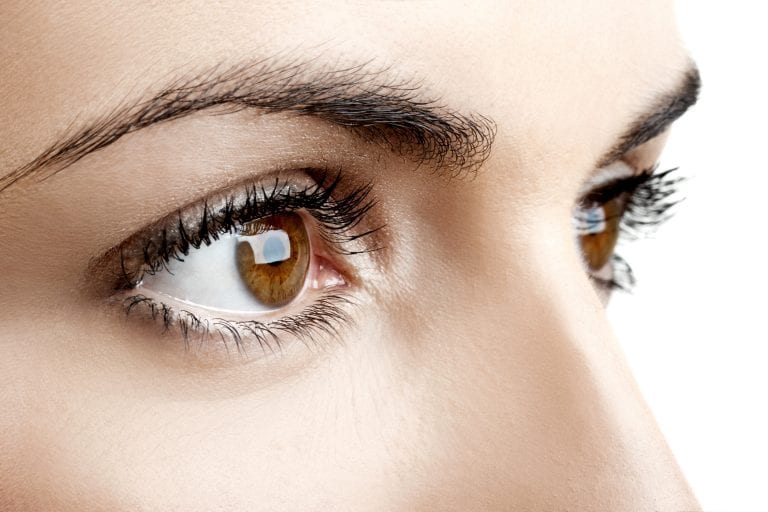10 TRUTHS AND MYTHS ABOUT YOUR EYES

We all grew up with stories, fables and “old wives tales” about ways to keep healthy. Sayings like “an apple a day keeps the doctor away” kept us alive and well for generations…or did they?
Here are the most common myths busted and truths revealed about eye health and vision.
Reading in the dark will harm your eyes
MYTH – there is no evidence that reading under dim light will cause permanent eye damage. The worst that can happen include eye strain, headaches, and fatigue, which should be reason enough to turn on that lamp, but you won’t lose your vision as a result.
Eating carrots will sharpen your vision
PARTIALLY TRUE – while certain types of foods do have protective benefits against eye diseases like macular degeneration, and carrots do contain Vitamin A which is good for ocular health, they are not particularly rich in “eye healthy nutrients”. The belief that carrots help you see better may have started in World War 2, when the British started the rumour to make people believe that their pilots had the best vision from all the carrots they were fed (in truth they found their targets using radar instead).
Contact lenses might get lost behind your eye
MYTH – a displaced contact lens (or any foreign body that gets caught in the eye) may get lodged up underneath the eyelids, but that’s as far as it can go. It can be difficult to remove in some cases, and our doctors are often called upon to remove them, especially if they break up into pieces. If you suspect something is stuck in your eye, don’t try and remove it yourself as you might cause additional damage – let our professionals do this for you, safely.
If you do eye exercises you won’t need glasses
MYTH – most of the time, glasses are needed to correct vision from refractive errors like nearsightedness, farsightedness and astigmatism, and these conditions will not improve no matter how many eye exercises you do. Less commonly, patients might need glasses for other reasons such as a weak focusing or eye teaming system. In some of these situations, eye exercises may be beneficial in reducing the amount of time someone may need to use glasses on a daily basis.
Glasses make your eyes more dependent on them
MYTH – nothing happens while wearing glasses that causes you to require them on a more permanent basis. What we do find is that once our patients appreciate how clear and efficient their vision is with the proper corrective lenses in place, they are more likely to continue wearing them.
If you make your eyes cross, they will stay that way forever
MYTH – while the practice might have made our friends laugh when we were kids, and our parents threatened us with “permanently crossed eyes” if we continued, there is no evidence that doing this will have any long-term consequences.
Sitting too close to the TV or playing video games is bad for your eyes
PARTIALLY TRUE – this depends on the age of the patient. We now know that extensive viewing of electronic screens held at a close distance (50cm or less) from the eyes is connected to an increased risk of developing nearsightedness in children(myopia). High levels of myopia are correlated with a higher risk for certain types of eye disease such as myopic macular degeneration and retinal detachment. Therefore,limiting your kids’ screen time according to guidelines established by the Canadian Association of Optometrists is a good principle to follow.Digital Eye Strain may result from extensive screen viewing by adults and children alike, however there is no risk of permanent damage to vision in adults.
2020 vision means “perfect eyes”
MYTH – while “2020 vision” is used to describe “normal” clarity of vision, it tells us nothing about the other systems our MVO optometrists evaluate at each comprehensive eye exam. Someone may have normal vision clarity, and test at 2020 vision, and may also have an eye disease that could put their future vision at risk. “2020 Vision” also is not descriptive of the eye teaming and focusing systems that contribute to comfortable and efficient vision. It’s important to get your eyes examined regularly, even if you feel that you see perfectly fine.Book your eye exam today to ensure your eyes and vision pass the tests…in every category!
It's safe to look directly at the sun with sunglasses on
MYTH – sunglasses categorically do NOT provide adequate protection to view the sun directly under any circumstances. Quality sunglasses that are properly fitted will provide adequate protection for reflected sunlight, which is why we strongly recommend their use for all daytime outdoor activities.
Unprotected sun exposure is good for your eyes
MYTH – while natural light exposure from outdoor activities has been found to be linked to a reduced risk for myopia in children (see previous article), the high levels of ultraviolet (UV) light from the sun is damaging to the sensitive tissue of the eyes. UV light, which is invisible to humans, has been linked to cataract development, macular degeneration, and skin cancer. Our recommendation for your kids? Get them outdoors, but not without their shades…they will get plenty of “good” light and also be protected from the ”bad” UV light.
Source:Old Wives’ Tales About Your Eyes: Is There Any Truth to Them? (allaboutvision.com)
